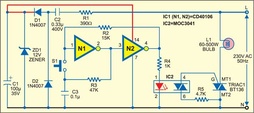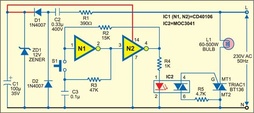What is Telecom Management ? PGDM / MBA in Telecom Management is a programme which develops understanding, knowledge and skills in all functional areas of a Telecommunication or what is known now as Information & Communication Technology (I…
What is Telecom Management ?
PGDM / MBA in Telecom Management is a programme which develops understanding, knowledge and skills in all functional areas of a Telecommunication or what is known now as Information & Communication Technology (ICT) Company. As the Communication Industry is very different from a FMCG industry & it requires very specialized education.....
Hello Friends,
This thread has been stared to give management aspirants a glimpse of work,studies and joy at MITSOT - The Second Best Telecom Business School across India, So feel free to express your queries. We would be happy to guide you on the same.
Why telecom sector as career in India
“The industry has seen humongous growth with voice services and now it is time to move further with data services. That's what makes the industry prospects bright,” says Khan. Telecom—a top sectorTelecom, being one of the fastest growing sectors, there is a great demand for skilled and qualifiedaspirants with a good technical know-how. Broadly classifying the telecom sector into two categories of companies, Venugopal Sharma, senior manager, software development, Cisco, says, “Basically, there are companies that provide telecom services, such as carriers like Airtel and Reliance, and companies that develop products for the telecom sector, such as Cisco, Alcatel Lucent and Juniper to name a few.” Sharma adds, “This industry has seen a significantgrowth in the recent years, primarily due to high penetration of mobile and hand-held devices and the services that run on them. The industry certainly has huge potential.”In India, the telecommunication industry is poised for growth. With the advent of higher-bandwidth technology, there will be growth in applications that require that band-width and devices that can utilise that bandwidth. Sridhar Parthasarathy, vice-president, telecom business unit, Maveric Systems, believes, “The industry is at an inflection point preceding an explsive growth. This would also enable carriers to offer differentiating higherend services and improve their average revenue per user.”
Source:
Opportunities for freshers in Telecom:
Freshers are always a major chunk of the recruiting plan in any industry. Telecom companies have been recruiting freshers over the years.
Sharma says, “Freshers are usually put through a mentoring system where they get help from a senior colleague to ramp-up quickly and to understand the nuances. In addition, they go through several orientation programmes to introduce them to the corporate environment and technical trainings to equip them with right skills and knowledge. In most cases, the freshers learn on-the-job with the help of a senior mentor.”
Given the current growth rate and looking at the future prospects, there are abundant opportunities for freshers in this sector.
“If a fresher is being allocated to the development team, he would definitely be involved in coding, where it is essential to have knowledge about programming languages. But if he is allocated to testing team, he would be involved with testing of software to ensure that whatever is being developed is free of bugs and giving the desired results,” says Majeed.
There are various kinds of jobs available for those who install and maintain telecom hardware as well. Some of these jobs are lumped into the category of telecommunications technicians.
Talking about Maveric, Parthasarathy says, “We specialise in lifecycle assurance, which requires us to support clients across the IT adoption lifecycle. Therefore we expect all our associates to be well grounded in the testing processes and in the domain.”
Freshers are always a major chunk of the recruiting plan in the telecom industry. It certainly requires technical graduates with an aptitude for testing to shine in this industry
Adding to Maveric's grooming process, he says, “We invest in our people and have a long-term perspective in our interaction with them. Grooming from a scratch is therefore important. A fresher would, after receiving the initial training, be associated with a mentor so that he/she can be guided on the domain, testing and people interaction skills gradually.”
Source:
Variety of job roles
Freshers can be absorbed across verticals depending on the business requirements. Talking about the entry-level roles,“It can vary from a management trainee to an executive of any vertical existing today in the telecom sector. Freshers can join a business process outsourcing (BPO) unit, knowledge process outsourcing (KPO) unit, sales, marketing, HR, product development, R&D;, relationship management, software and hardware engineering depending on their educational background and interests.”Talking about his experience in the telecom sector, particularly managing enterprise products and customers for the last 16 years, Revuru says, “The biggest challenge I face with fresher engineers is while developing products for enterprise customers, which is an entirely different ball game from perceived 'cool' apps development.” He adds, “Though it takes four to six months for an engineer to start being productive, it takes one to two years to really appreciate the challenges and technology in the telecom domain.”
Source:
whats avg salary offered at mitsot????
Anybody can tell me how this college MITSOT??
does it provide MBA or pgdm?
looking for a good Telecom College in Pune & Mumbai. Guys any idea about SITM and MITSOT?
What to choose in between MITSOT or SITM?
how is retail business in mitcom pune?

